









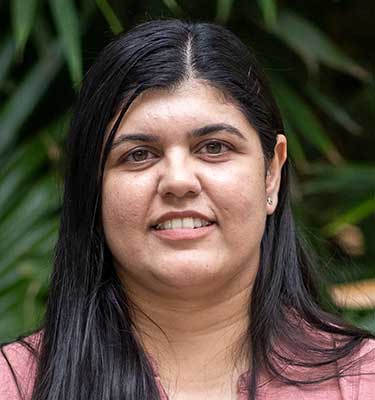


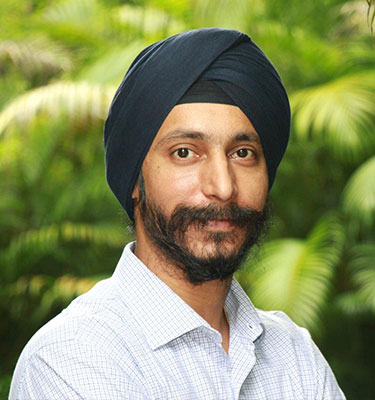











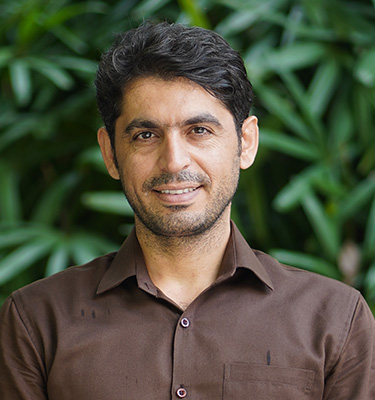





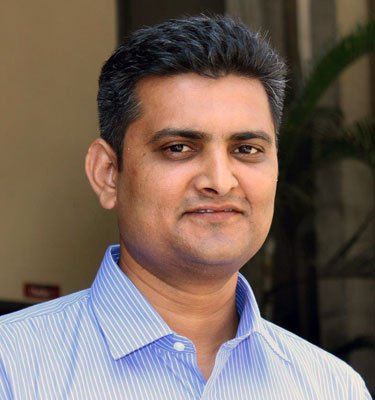



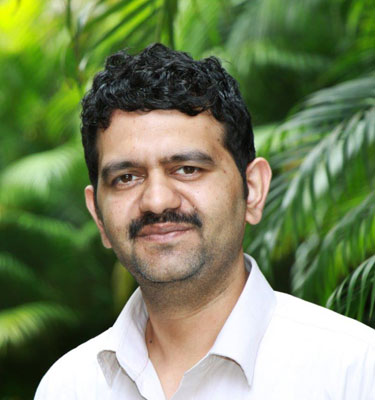




FACULTY

Prof. Shilpa Shinde
Dr. Shilpa Shinde is an Assistant Professor in the area of Human Resource Management and Organizational Behaviour at FLAME University, Pune. She has over 16 years of professional experience encompassing teaching, training, consulting, and research. Dr. Shinde holds a Master’s degree in Human Resource Development from Peabody College of Education, Vanderbilt University, and earned her Ph.D. in Psychology from Savitribai Phule Pune University.
Dr. Shinde’s research interests lie in the domain of psychological well-being, with an emphasis on students in higher education, employed mothers, and employees experiencing the outcomes of managerial coaching.
Dr. Shinde actively designs and delivers training programs on emotional intelligence, personal growth, interpersonal behaviour, and small group communication. Her training initiatives span across both corporate organizations and government institutions. Notably, she has conducted sessions for the Bridgestone group, Pune; Department of Agriculture, Goa; the Water Resources Department, Maharashtra; civil servants of the Maldives at the National Centre for Good Governance, Mussoorie; military engineering officers at Dr. MCRHRDIT, Telangana; and Class-I Officers as part of the Foundation Training Programme at Yashwantrao Chavan Academy of Development Administration (YASHADA), Pune.
Research Publications
- Shah, S. S., Chaudhry, S., & Shinde, S. (2025). Supermoms—Tired, admired, or inspired? Decoding the impact of supermom beliefs: A study on Indian employed mothers. PLoS One, 20(4), e0321665.
- Chaudhry, S., Tandon, A., Shinde, S., & Bhattacharya, A. (2024). Student psychological well-being in higher education: The role of internal team environment, institutional, friends and family support and academic engagement. Plos one, 19(1), e0297508.
- Shah, S. S., & Shinde, S. (2024). An overview of antecedents of OCB and recommendations for improving it in post-pandemic work. In S. M. Patki & S. C. Abhyankar (Eds.), Organizational Citizenship Behaviour (OCB) in India: Emerging trends and future directions (pp. 33–55). Springer Nature Switzerland AG. https://doi.org/10.1007/978-981-99-9688-9_3
- Chakrabarti, D., Shinde, S., & Chaudhry, S. (2021). Teaching non-written communication skills to MBA students through evaluated exercises. Journal of Organizational Behavior Education, 14, 143–162.
- Jagani, K., & Shinde, S. (2020). Compensatory consumption and reprieve from trauma-related negative emotions: An Indian context. International Journal of Marketing Semiotics & Discourse Studies, VIII, 1–15.
- Shinde, S., & Bachhav, A. (2017). The potential of managerial coaching for employee effectiveness: A brief review. Indian Journal of Positive Psychology, 8(2), 181-185.
- Ghatge, B., Chakrabarti, D., & Shinde, S. (2015). Building a high-performance organization: Anna Bhau Ajara Shetkari Cooperative Spinning Mill. South Asian Journal of Business and Management Cases, 4(1), 87–99. https://doi.org/10.1177/2277977915574042
Conferences:
- Shinde, S & Shah, S. (2025). Can Managerial Coaching Influence Organizational Commitment? An Empirical Enquiry Using Self-Efficacy as a Moderating Variable. In Conference of Indian Academy of Management (INDAM). Kolkatta, West Bengal.
- Shinde, S., & Ghatge, B. (2017). Managerial Coaching Behaviour and Work Engagement. In 27th Annual Conference of National Academy of Psychology (NAOP). Kharagpur, West Bengal.
- Tandon, A., & Shinde, S. (2016). Boundary emergence in coworking spaces: Implications for learning and innovation. In 26th Annual Conference of National Academy of Psychology (NAOP) (pp. 94–97). Madras, Tamil Nadu.
- Heitman, E., Shinde, S. V., & Collins, J. (2011). Survey of Bioengineers on Topics for Relevant Case‐based Ethics Education Materials. In Experimental Biology 2011 Meeting Abstracts.

